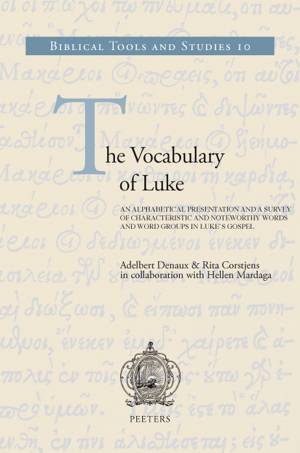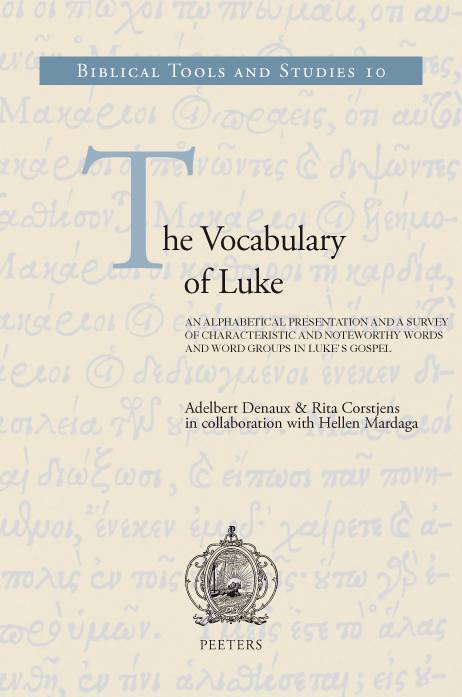
- Retrait gratuit dans votre magasin Club
- 7.000.000 titres dans notre catalogue
- Payer en toute sécurité
- Toujours un magasin près de chez vous
- Retrait gratuit dans votre magasin Club
- 7.000.000 titres dans notre catalogue
- Payer en toute sécurité
- Toujours un magasin près de chez vous
The Vocabulary of Luke
An Alphabetical Presentation and a Survey of Characteristic and Noteworthy Words and Word Groups in Luke's Gospel
R Corstjens, A Denaux, H Mardaga
84,00 €
+ 168 points
Description
The Vocabulary of Luke is a linguistic tool intended to help students of the Greek text of Luke and the Book of Acts. It offers a full alphabetical list of the vocabulary of the Gospel of Luke. For each lemma it gives (1) a comparative statistical survey of the occurrences in Luke and Acts, Matthew and Mark; (2) the various possible meanings (with references, based on the lexica of Louw-Nida and Bauer); (3) a comparative list of word groups (based on the concordances of Aland and Hoffmann as well as our own research); (4) a comparative list of words and word groups that have been considered to be characteristic of Luke; (5) the relevant linguistic literature concerning each lemma. The introduction gives a historical and critical survey of the research of the last two centuries and an appendix with a list of words and word groups that only occur in Luke and/or Acts. This publication was realised by the team of the research project (1999-2003): "Het hellenistisch-Griekse taaleigen van het Lucasevangelie en de Handelingen van de Apostelen" (A Comparative Study of the Language of Luke-Acts), sponsored by the Research Council of the K.U. Leuven and by the Fonds Wetenschappelijk Onderzoek-Vlaanderen. Promoter of the project was Prof. Adelbert Denaux. His scientific collaborators in the research team were Rita Corstjens, who played a major role in collecting and organising the data, and Dr. Hellen Mardaga, who finalised the project by checking all of the data (2007-2008). There is no linguistic tool that gathers so much data in such a conveniently arranged way. All data can be verified, because references are given for each linguistic feature that occurs in Luke and Acts as well as the scholars involved in the discussion. The efforts of the authors will be rewarded when students of Luke's language and Gospel will feel relieved when they no longer have to do the painstaking work that we have done, and when they use this tool as a basis for further linguistic and exegetical research.
Spécifications
Parties prenantes
- Auteur(s) :
- Editeur:
Contenu
- Nombre de pages :
- 655
- Langue:
- Anglais
- Collection :
- Tome:
- n° 10
Caractéristiques
- EAN:
- 9789042923485
- Date de parution :
- 31-12-09
- Format:
- Livre relié
- Format numérique:
- Genaaid
- Dimensions :
- 170 mm x 244 mm
- Poids :
- 1270 g







